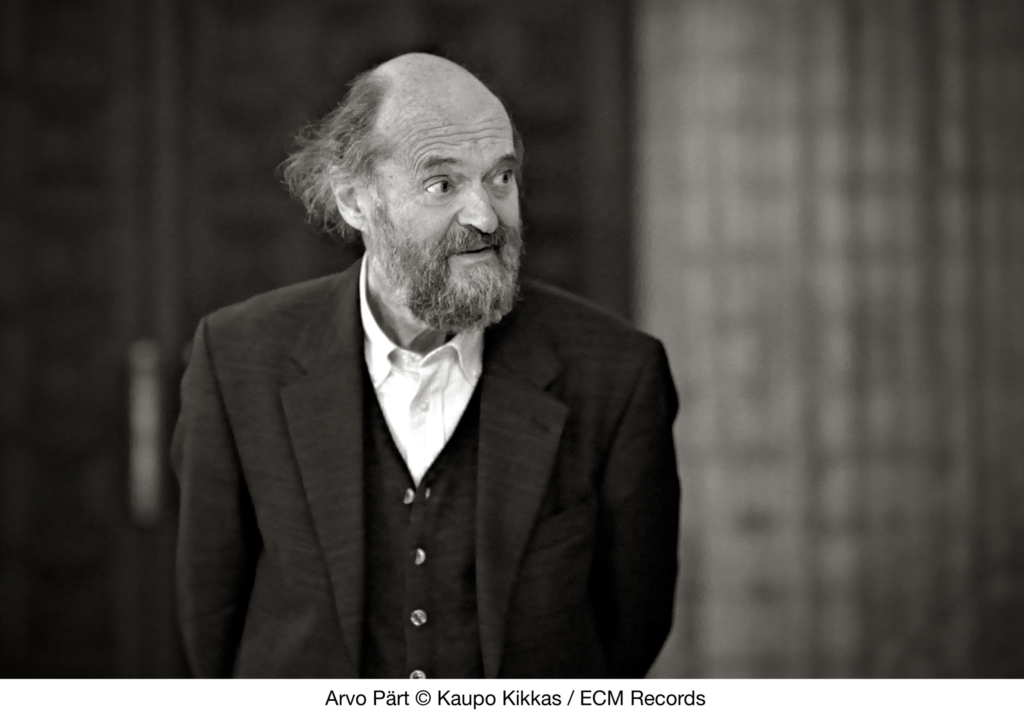
discover
Kanon Pokajanen (Canon of Repentance), which premiered in March 1998, is considered Arvo Pärt’s most monumental composition. The lengthy creative process, during which he carefully assimilated the Church Slavonic text, and the work’s restrained yet subtle style embody the same sincerity and the same spiritual and contemplative aura as an icon painting. Pärt was commissioned by the city of Cologne to compose a piece for the 750th anniversary of the Cologne Cathedral. He completed the work in 1997, and it premiered in the cathedral on March 17, 1998.
Kanon Pokajanen bears the hallmarks of Pärt’s tintinnabuli style, remaining almost entirely in D minor, deviating only in particularly expressive passages and occasionally in final cadences. Overall, the melodies and harmonies remain fairly static.
Perhaps the greatest of the “holy minimalists” (alongside Henryk Górecki and Sir John Tavener), Arvo Pärt describes his encounter with the text and his journey toward composing this work as follows:
“Many years ago, when I first immersed myself in the tradition of the Russian Orthodox Church, I encountered a text that left a profound impression on me, though I probably did not fully understand it at the time. It was the Canon of Repentance. Since then, I have often returned to these verses, slowly and painstakingly searching for their meaning. Two choral compositions (Nun eile ich…, 1990, and Memento, 1994) were my first attempts to approach the canon. Then I decided to set the entire text to music, from beginning to end. This allowed me to fully immerse myself in it and dedicate myself to it; and at least until I had completed the score, this text held me in its grip. I had a similar experience while working on Passio. It took me more than two years to compose Kanon Pokajanen, and the time ‘we spent together’ was extraordinarily enriching. Perhaps that explains why this music means so much to me.”
reviews
In striving to get to the essence of the words, Pärt has created ‘a precious island in the inner seclusion of our soul’, and Cappella Amsterdam under Daniel Reuss more than do justice to Kanon Pokajanen’s distilled purity and sublime beauty.
Gramophone Magazine
Pärt himself indicated that in the Kanon, he “wanted the word to be able to find its own sound, to draw its own melodic line,” to which one might add in order to “build its own larger shapes” as well. The work is thus suited well to the sound of the Cappella Amsterdam under Daniel Reuss, not one of the usual choirs that interpret Pärt with a maximum of purity, but add expression and just a bit of vocal heft. The results are impressive and carry a sense of the ecstasy inspired by the very best Pärt performances.
AllMusic Review









